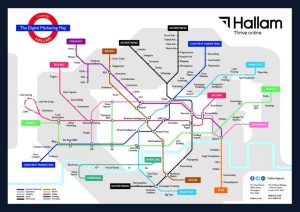Google search will be almost entirely based on artificial intelligence, inbound links will have little to no relevance, and the search box will have all but disappeared.
To understand SEO, you must understand that the online environment is constantly changing. As a result, if you want your company to succeed online, keep your eye on this rapidly-changing environment. Here are a few predictions for what SEO will look like in 10 years.
Use of specific niche search engines for applicable topics
In 10 years, it is expected that there will be more specialized search engines for varying types of information. For example, in South Korea few people use Google. Instead they use a Korean-specific search engine called Naver. People in Korea just like it better because it is more culturally and linguistically in tune with Koreans. With web apps more people are bypassing Google and going straight to places like Amazon. The Internet of Things (IoT) is another example of search happening between machines. That is, search engines for machines.
Increased use of Accelerated Mobile Pages (AMP)
This project is being developed in order to make the mobile web much faster than it is currently. AMP relies on a stripped down version of HTML. The future of the web lies in mobile, and the tipping point from desktop to mobile was recently reached. Google is leading this open source project with other recognized technology partners who want to ensure that AMP designed pages load as quickly as possible regardless of your connection. For blog posts and news articles, AMP pages will be the most beneficial as they come with fast delivery. But AMP pages are cached not on your server, but on Google servers around the world. So resulting traffic may never reach your actual website and SEO value may be nill. The SEO jury is still out on AMP.
SEO and social media will become one with traditional marketing tactics
In 10 years SEO will just be marketing. No longer a specialty. Traditional marketing will be relegated to a sub-specialty, in fact this is already happening. Marketing will be focused on producing relevant and engaging content through interactive apps, videos, text and images as well as trying to appeal to new audiences, like other machines (IoT).
Irrelevant links will be obsolete
After Google launched Penguin, many SEOs stopped looking at their site quality. They started to focus on building links through guest blogging. In the future, guest blogs with low-quality and spun content or irrelevant placements may be deleted. I write for BuildNicheLinks, and one of our priorities to ensure all of our guest blogs are relevant to the page and topic.
Artificial Intelligence will continue to take over search
Google processes around three billion searches per day. Around 15 percent of daily search phrases have never been searched on Google before. Artificial intelligence like RankBrain helps Google to interpret long-tail queries (specific searches with several words) and rank them, even if there are few or no links to a page. RankBrain attempts to mimic human behavior. Moreover, RankBrain helps Google to understand more complex searches, along with their relationships to particular topics.
Social media will lose its lustre
Social media will still play a critical role with SEO in the future but will lose it’s lustre as it evolves into a utility. As noted above, SEO will simply become marketing, and so will Social Media.
Google assistant comes to the forefront
Similar to Google Now, Google Assistant is a bit of an upgrade. To illustrate, you can ask a question and get an answer. Yet, you can follow up with several questions in a more conversational manner. Google has an independent chat bot app called Allo, which is integrated with Google assistant. Furthermore, Google Home offers Google assistant. CEO Sundar Pichai said, “Think of the assistant, we think of it as a conversational assistant, we want users to have an ongoing two-way dialog.” We’ve mentioned before that what Google is really building is the computer from the original Star Trek TV series.
Google Assistant can also distinguish between several queries and give the right answer. In the future, there will be an increase in conversational user interfaces and AI-powered concierge services. A question for Google assistant might be, “who is the director of Contact?” A follow up question may be, “what other movies has he or she directed?” Google Assistant can also set calendar reminders or change reservation times.
In the next 10 years, SEO will evolve to where users can search for an find specific items using niche search engines. Search engines may have their own search engines as well. Mobile will be the most prominent place for searches and queries, but those queries will be spoken. Content will need to continue to be relevant and of high-quality because links will matter less, or not at all due to artificial intelligence continuing to rise as a key indicator in Googles relevance factoring.
Digital & Social Articles on Business 2 Community(99)






